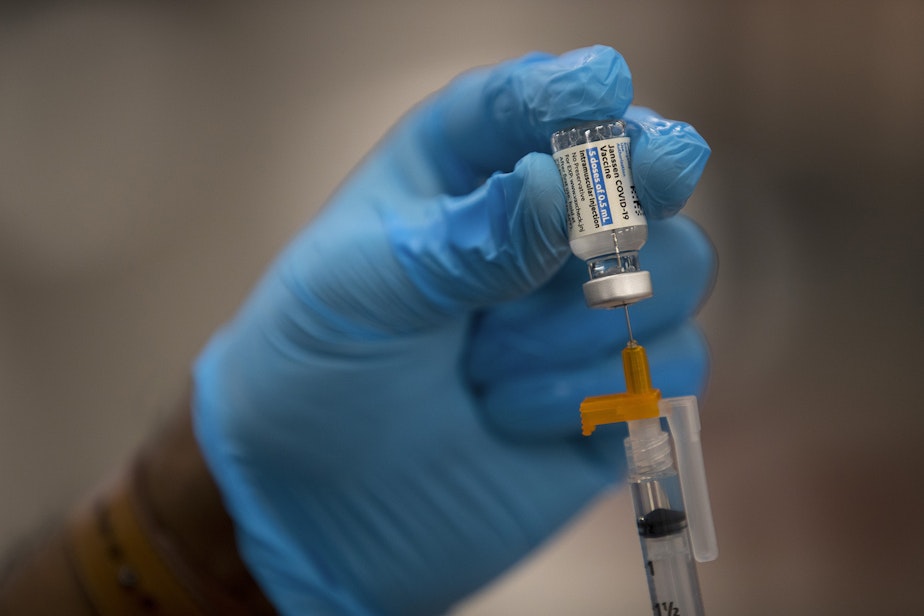Janitors and security guards worry they are left behind by vaccination efforts

Frontline workers are vying for a vaccine dose to protect themselves against Covid-19 as new cases rise in the Puget Sound area, yet again.
Some janitors and security guards say they are being left behind by state guidelines.
Demetrus Dugar is a security guard at an office building in Seattle's Pioneer Square.
When he comes home, one of his four daughters tries to tackle him with a hug. But he's cautious instead to ask them to stand back so he can change out of his work clothes and hopefully minimize any contact with the virus.
This is a ritual that like thousands of others he's had to keep up for over a year, to keep himself and his family safe.
Dugar is 35 so he’s not eligible under Washington state’s current vaccine guidelines. He's also not in the expanded group of workers that becomes eligible this week.
"Security officers, we're making rounds, we’re touching everything. It’s not like most jobs where you’re pretty much [just] touching your chair, your desk. We’re going all over the building, checking exterior doors."
Sponsored
Similarly, janitors worry about their exposure to coronavirus as well, especially as schools and businesses begin to open back up and their services are in high demand. Seattle Public Schools recently put out a call for an additional 100 custodians to help with strict cleaning schedules as students re-enter buildings.
Under the current guidelines, some security guards and janitors are already eligible — but only if they’re older than 65, have certain health conditions, work in congregate settings like prisons, or if they work in a hospital.
Union advocates say these guidelines leave out roughly 6,000 janitors and security guards around the Seattle region.
SEIU 6 (the union that represents workers like janitors and security guards) has appealed to Governor Jay Inslee and the state Department of Health to expedite access for these workers.
"We're calling on them to expand access to essential workers of all ages immediately, because these are the communities who have been hit the hardest, not just by Covid infection and mortality rates, but by the stress of providing for your family as an underpaid essential worker during this pandemic," said Union President Zenia Javalera.
Sponsored
"These are the folks who have kept the lights on for the rest of Washington.”
Officials with the Department of Health said they’re currently limited by vaccine availability and are prioritizing the workers at highest risk, but they are optimistic that by May 1 everyone 16 and older will be eligible for a shot.




